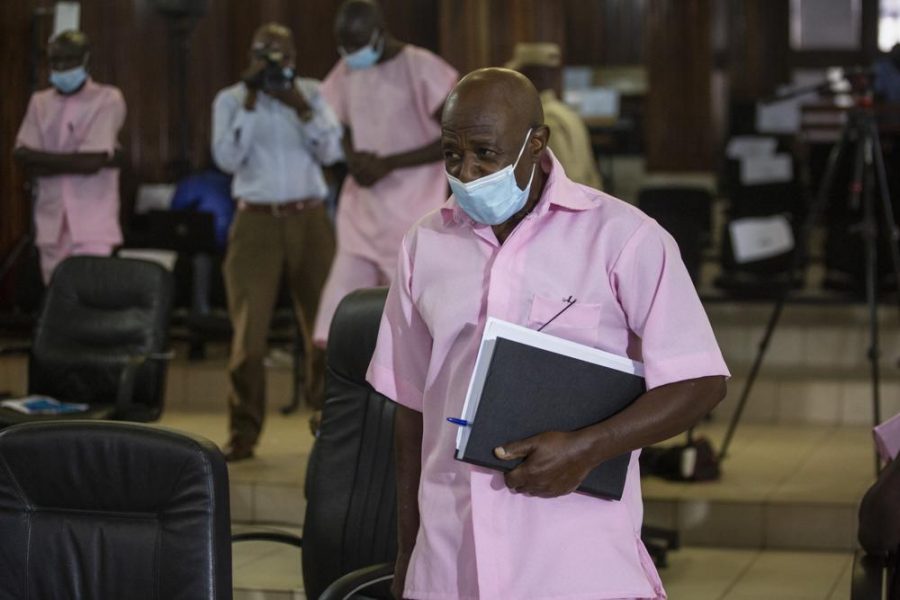Man who inspired ‘Hotel Rwanda’ sentenced to 25 years in prison
Paul Rusesabagina was sentenced to 25 years in prison for terrorism offences on Sept. 20. Rusesabagina sheltered Rwandans in the hotel he managed during the genocide, inspiring the film “Hotel Rwanda.”
As reported by the Associated Press, Paul Rusesabagina — the man who inspired the movie “Hotel Rwanda”— was sentenced to 25 years in prison for terrorism offences on Sept. 20. Rusesabagina rose to prominence after sheltering Rwandans from the Tutsi ethnic group in the hotel he oversaw during the 1994 Rwandan Genocide, largely saving them from the violence engulfing the nation around them.
During this three month period, the United Nations estimates that more than one million people were murdered in the genocidal violence largely undertaken by extremist elements of the Rwandan Hutu ethnic group.
Human rights groups such as Amnesty International assert that Rusesabagina — a United States (U.S.) resident and Belgian citizen — is the target of retaliation from the Rwandan government under president Paul Kagame. The Sept. 20 trial comes nearly a year after Rusesabagina’s disappearance during a trip to Dubai, during which a Rwandan pastor tricked Rusesabagina to board a plane destined for Rwanda.
This pastor — working undercover for the Rwandan Investigation Bureau — stated that Rusesabagina expressly supported the armed wing of the Rwanda Movement for Democratic Change, which committed violent attacks in Southern Rwanda in 2019.
“Rusesabagina’s case is a prime example of what political scientists call ‘authoritarian image management,’” said Matthew Fails, associate professor of political science at Oakland University. “Rwanda is one of a growing number of authoritarian regimes that aggressively pursues critics in an effort to silence them. Many autocracies clamp down on critics domestically, but this case is transnational. The lengths that the Rwandan regime undertook to essentially trick Rusesabagina into returning to Rwanda, where he was arrested, are likely designed to signal to other regime critics that they can never be completely safe, no matter where they are.”
Rwanda’s courts have ruled that Rusesabagina’s status as a U.S. permanent resident — and Belgian citizen — do not supersede his Rwandan origin in legal importance. Local Rwandan law does permit the trial of non-Rwandan nationals who commit crimes on Rwandan soil.
However, such legal arguments are skepticized by human rights organizations who point out Rusesabagina’s testimony that he was gagged and tortured, had his legal papers confiscated and initially refused the right to choose his own lawyer by the Rwandan government.
“In the internet age, they [the Kagame regime] will discover you and find a way to punish you,” said Getnet Bekele, associate professor of history at OU. “We are entering into this phase of international politics where the world’s strongmen [dictators] are able to surveil and pursue political dissidents through their social media presence. Even if you are a legitimate opposition figure, it is easy for an unfriendly government to brand you as a terrorist.”
Professor Bekele also described how Kagame’s presidency has been legitimized through characterizing opposition members as terrorists. This capitalizes on the idea of a global war on terror, where anything done to an opposition leader — or terrorist — is acceptable because it is in defense of the greater good — which is in this case the continued survival of the Kagame regime.
“Under Kagame, and his political party the Rwandan Patriotic Front, the country has also enjoyed several decades of rapid economic progress, especially by sub-Saharan African standards,” said Professor Fails. “But all of this has come at the cost of an increasingly authoritarian political system. Under Kagame, opposition political forces have been regularly sidelined and cut out from political power, and regime critics have been increasingly repressed. Kagame also helped engineer a change to the country’s constitution that can allow him to serve as president until 2034. Incredibly, that would mark 40 years from when he first took over. That kind of authoritarian longevity is rarely seen outside of a few dynastic monarchies left in the world.”








